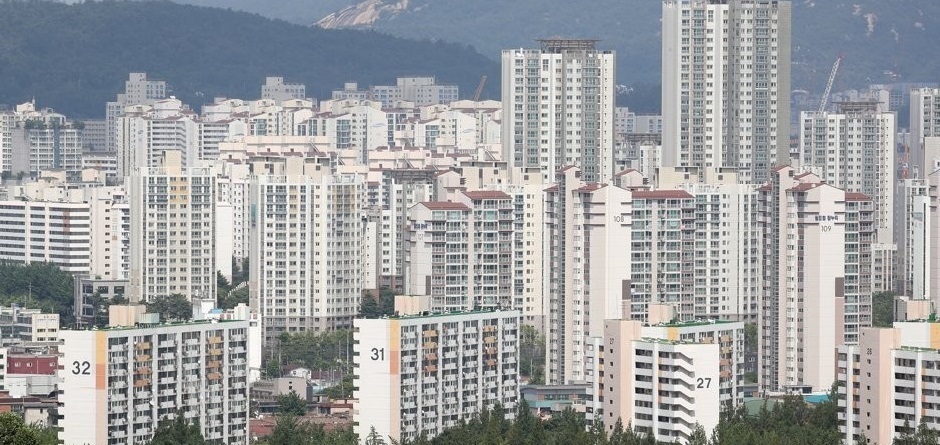 |
Apartments in South Korea (Yonhap) |
South Korea’s tax revenue in proportion to its gross domestic product is still lower than average for members of the Organization for Economic Cooperation and Development, though it has gradually gone up.
The country’s property tax revenue, however, accounted for 3.3 percent of its GDP, nearly 1.7 times the OECD average of 1.9 percent, a state-funded think tank said.
Among the 37 OECD members, Korea’s taxes were relatively low overall in proportion to the size of its economy, but Korea was collecting more in property taxes. Property taxes include inheritance and gift taxes.
Korea’s total tax revenue amounted to a fifth of its GDP in fiscal year 2019, while the average tax-to-GDP ratio for the 37 OECD members stood at 24.9 percent, according to the Korea Institute of Public Finance.
Korea’s tax-to-GDP ratio was 17.3 percent in 2014, but marked 20.1 percent in both 2018 and 2019.
The average tax-to-GDP ratio of the OECD countries was 24.4 percent in 2014. This inched up to 25 percent in 2016 and has remained at similar levels ever since, recording 24.8 percent in 2017, and 24.9 percent in 2018 and 2019.
Korea’s income tax revenue-to-GDP ratio was 5.4 percent, much lower than the OECD average of 8.3 percent.
The country’s value-added tax revenue stood at 4.6 percent of the GDP, also lower than the OECD average of 7 percent.
The country’s corporate tax revenue, on the other hand, accounted for 3.8 percent of its GDP, higher than the OECD average of 3 percent.
Korea’s property tax-to-GDP ratio is estimated to have gone up further last year due to recent property price hikes.
Korea’s tax revenues and social security contributions together accounted for 27.7 percent of its GDP last year, lower than the OECD average of 33.8 percent.
By Kim So-hyun (
sophie@heraldcorp.com)








